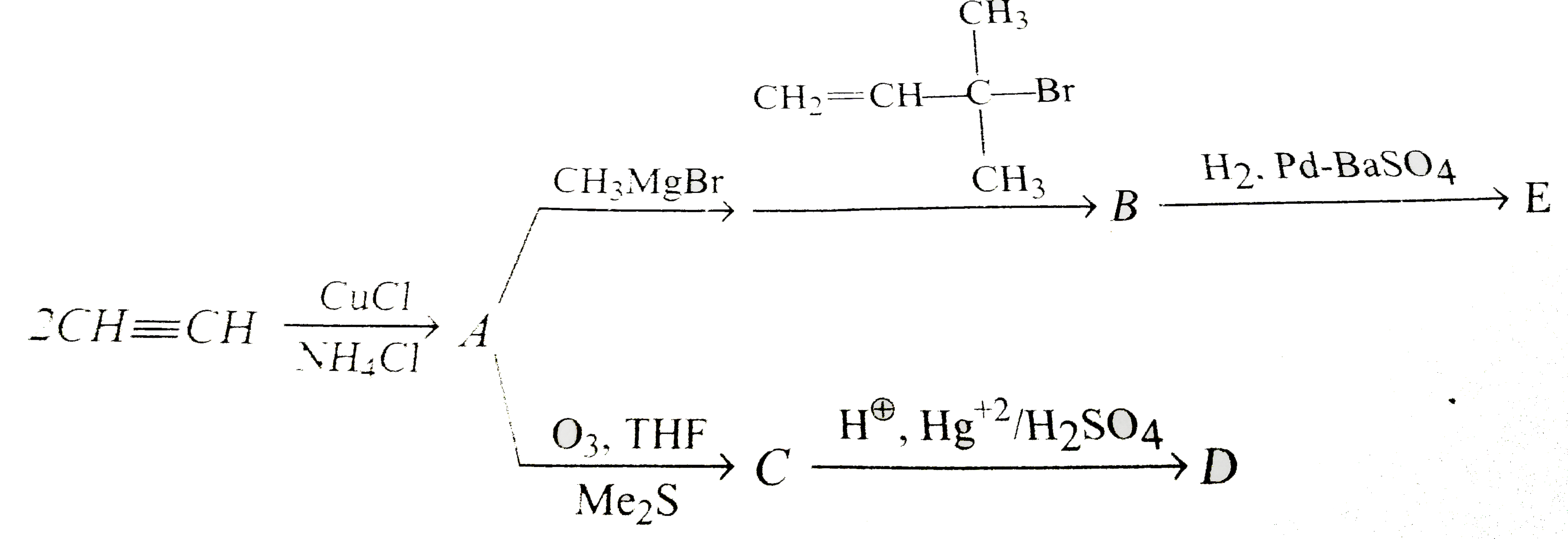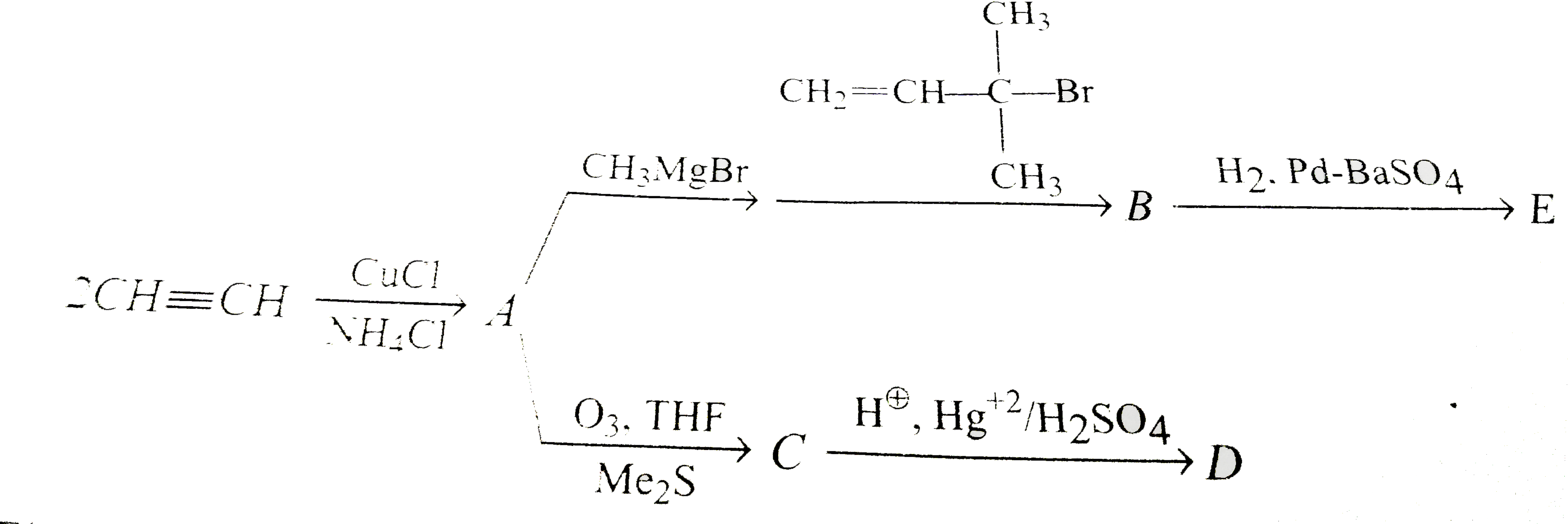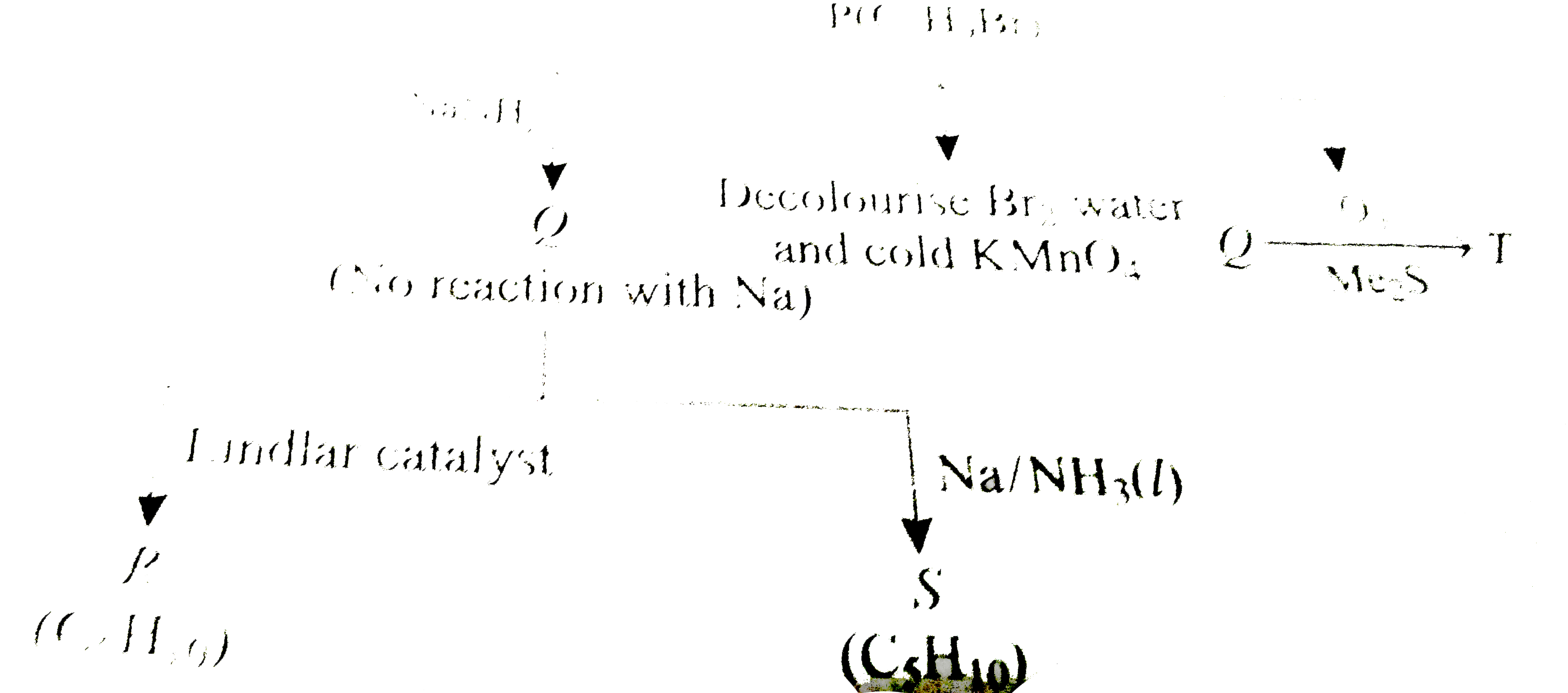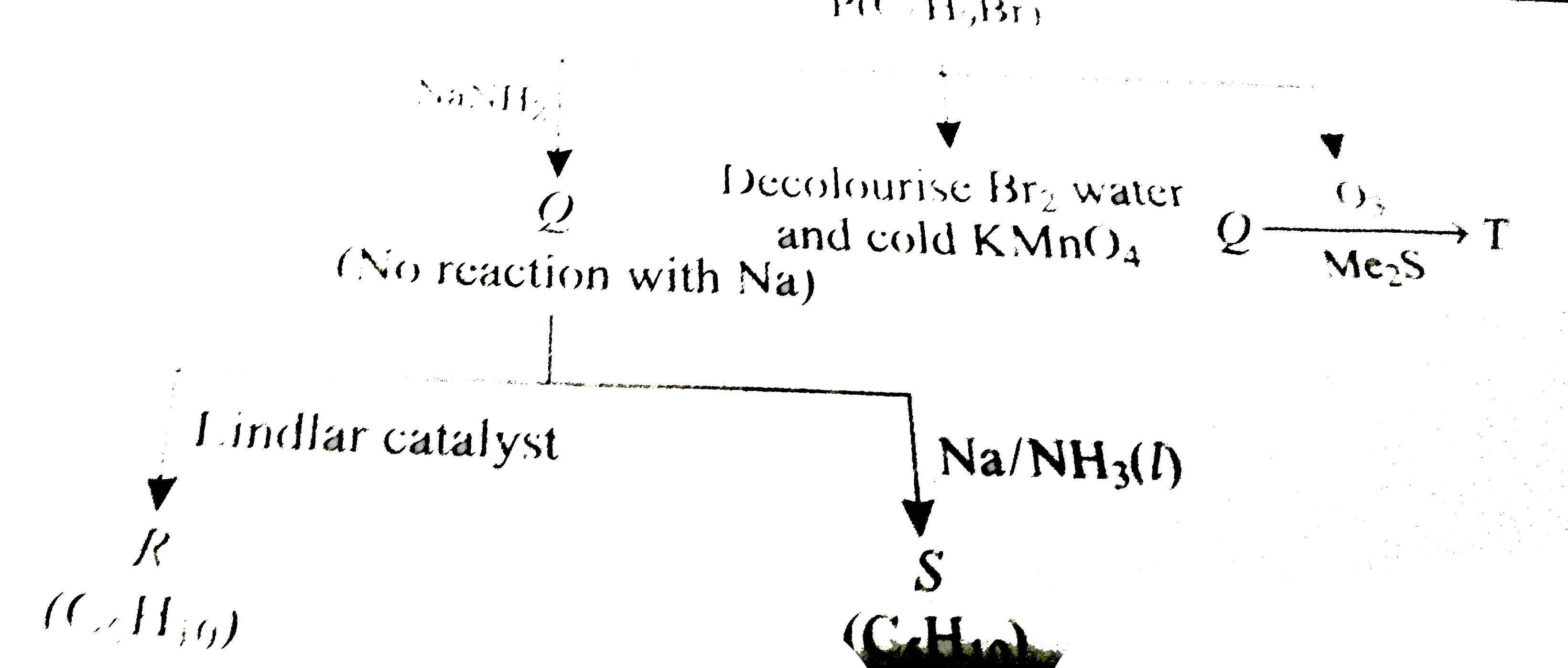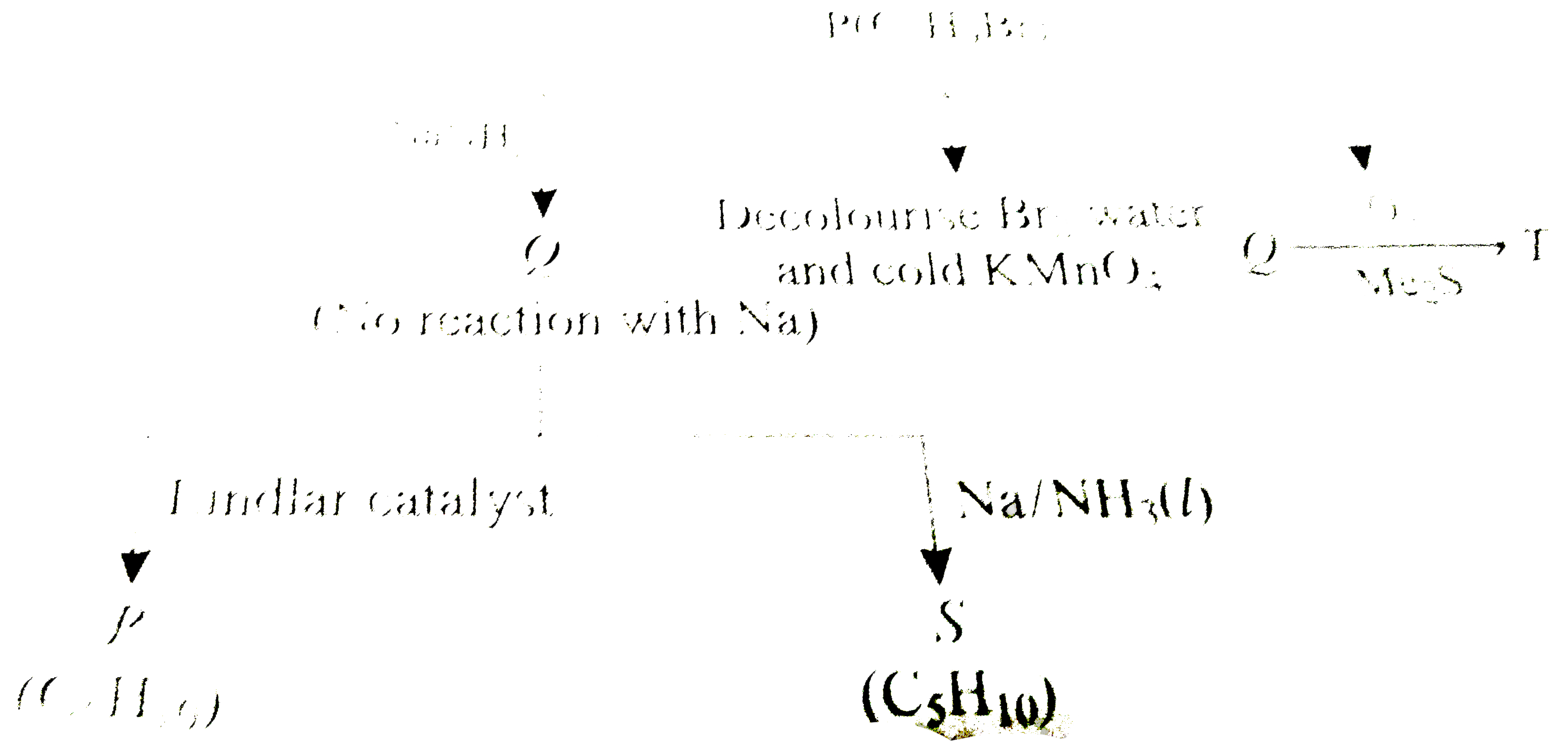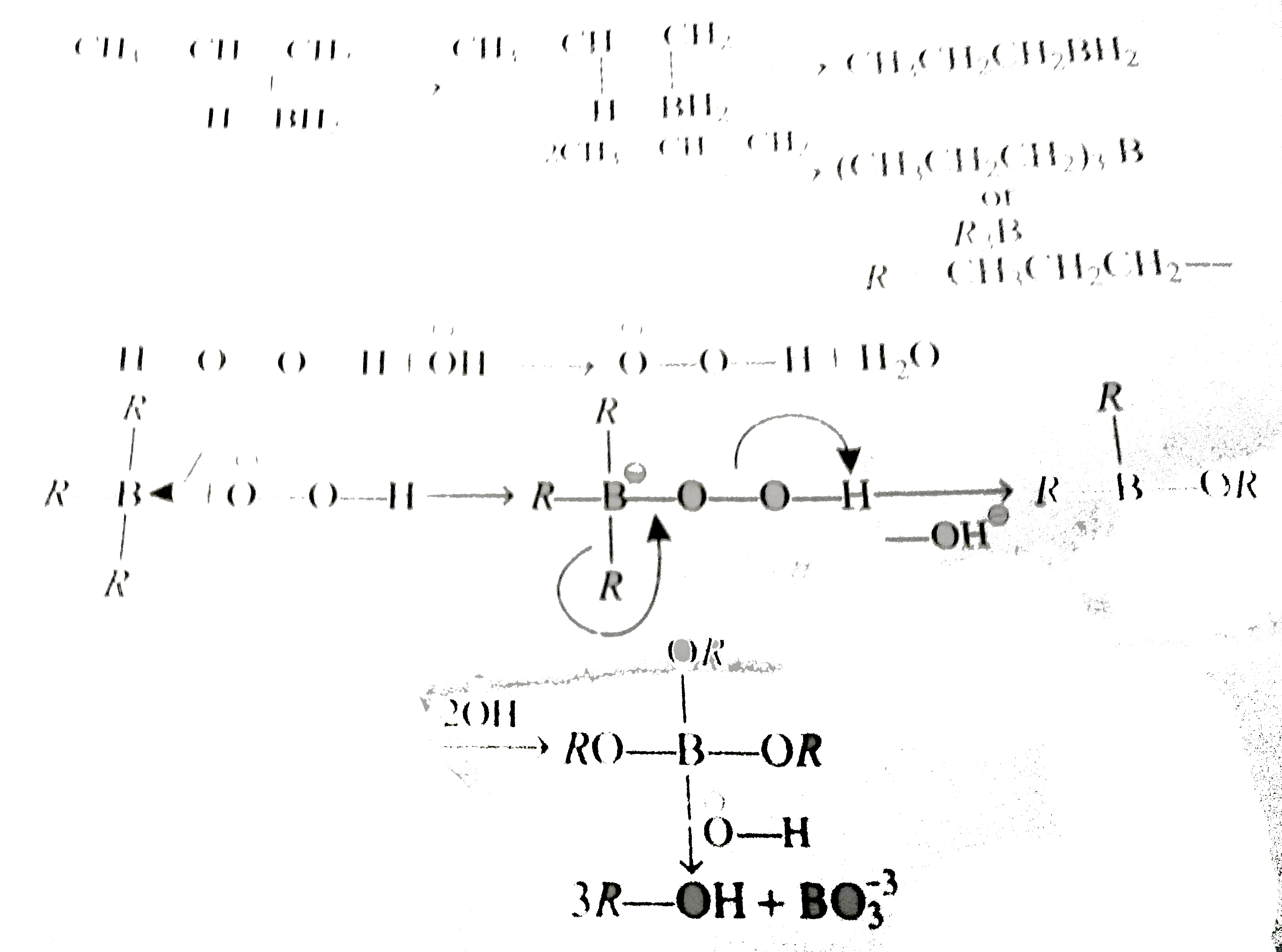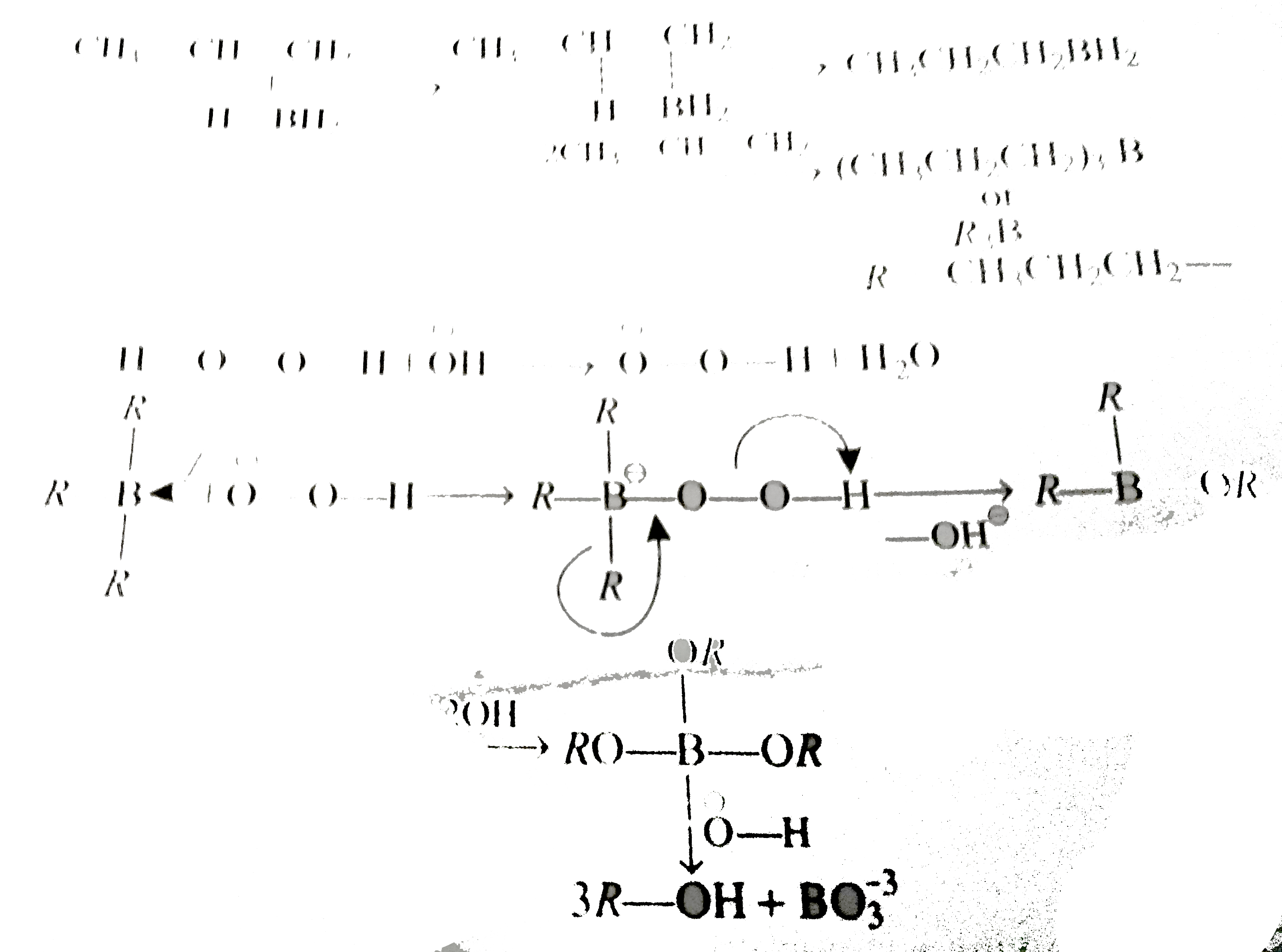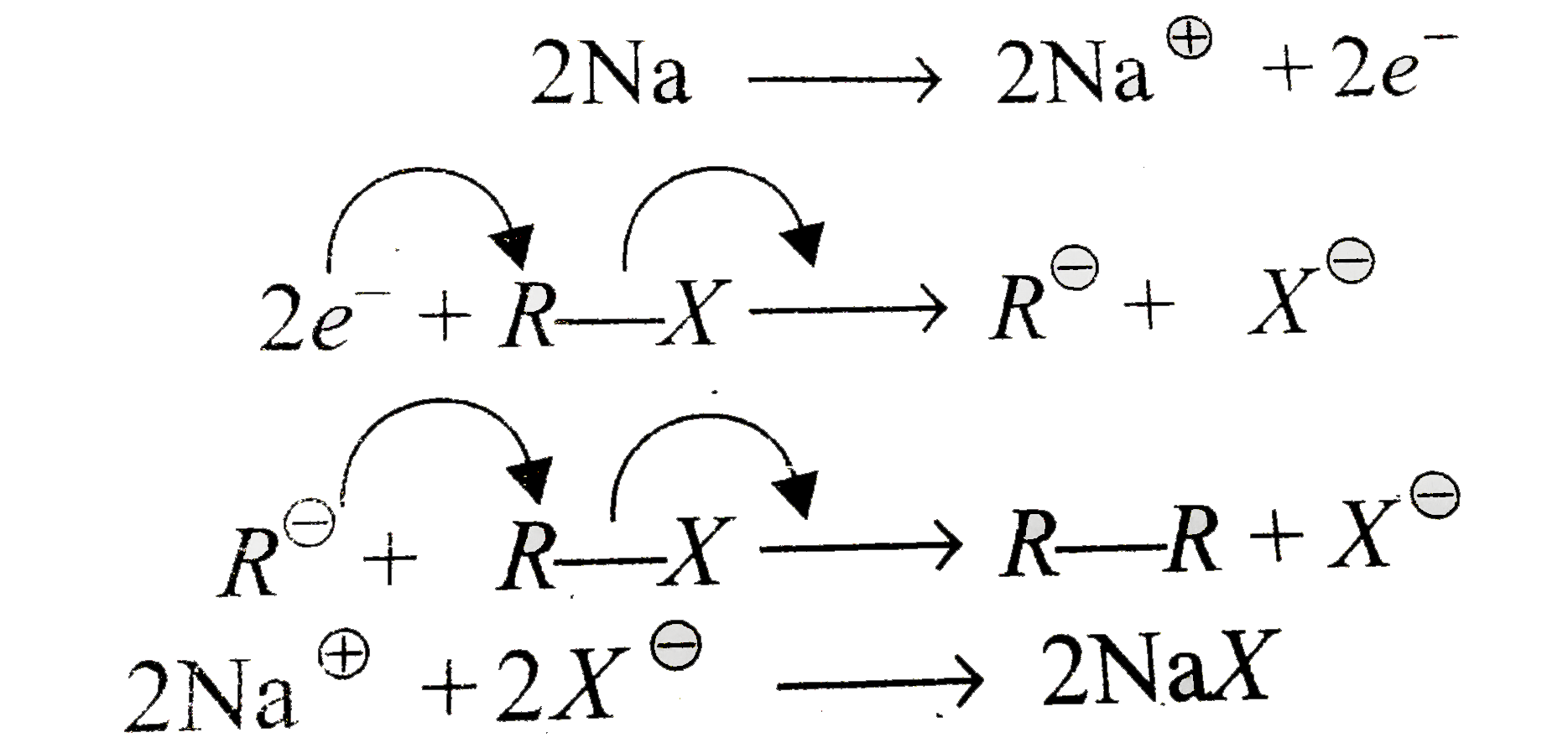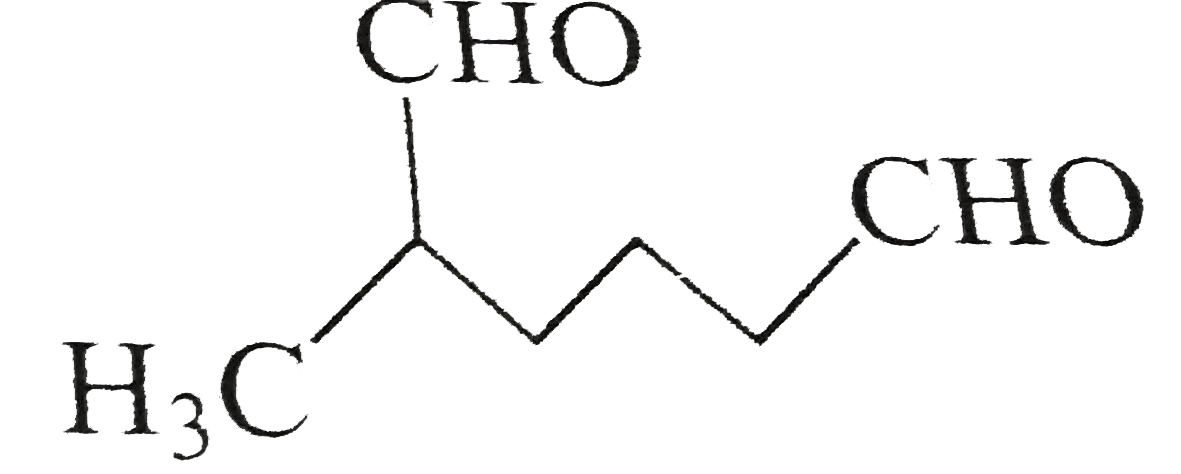Linked Comprehension Type (Q.1 To Q.25) from GR BATHLA & SONS CHEMISTRY Chapter 1 HYDROCARBONS (ALKANE, ALKENE and ALKYNE) for Class 11
| Class 11 | CHEMISTRY |
| Chapter | HYDROCARBONS (ALKANE, ALKENE and ALKYNE) |
| GR BATHLA & SONS CHEMISTRY | Linked Comprehension Type (Q.1 To Q.25) |
| Medium | English |
| Academic Year | 2023-2024 |
Question 1
Conjugated diene reacts with unsaturated hydrocarbon in presence of heat to lkproduce six membered cyclic product this reaction is known as Diels Alder reaction For this reaction conjugated diene should be in cisiod form. Aromatic hydrocarbon do not give Diels Alder reaction:

Which of the following conjugated unsaturated hydrocarbons will give Diels-Alder reaction?View SolutionQuestion 2
Conjugated diene reacts with unsaturated hydrocarbon in presence of heat to lkproduce six membered cyclic product this reaction is known as Diels Alder reaction For this reaction conjugated diene should be in cisiod form. Aromatic hydrocarbon do not give Diels Alder reaction:

Which of the folowing Diels-Alder reactions is fastest?View SolutionQuestion 3
Conjugated diene reacts with unsaturated hydrocarbon in presence of heat to lkproduce six membered cyclic product this reaction is known as Diels Alder reaction For this reaction conjugated diene should be in cisiod form. Aromatic hydrocarbon do not give Diels Alder reaction:

Find the product of folowing reaction:
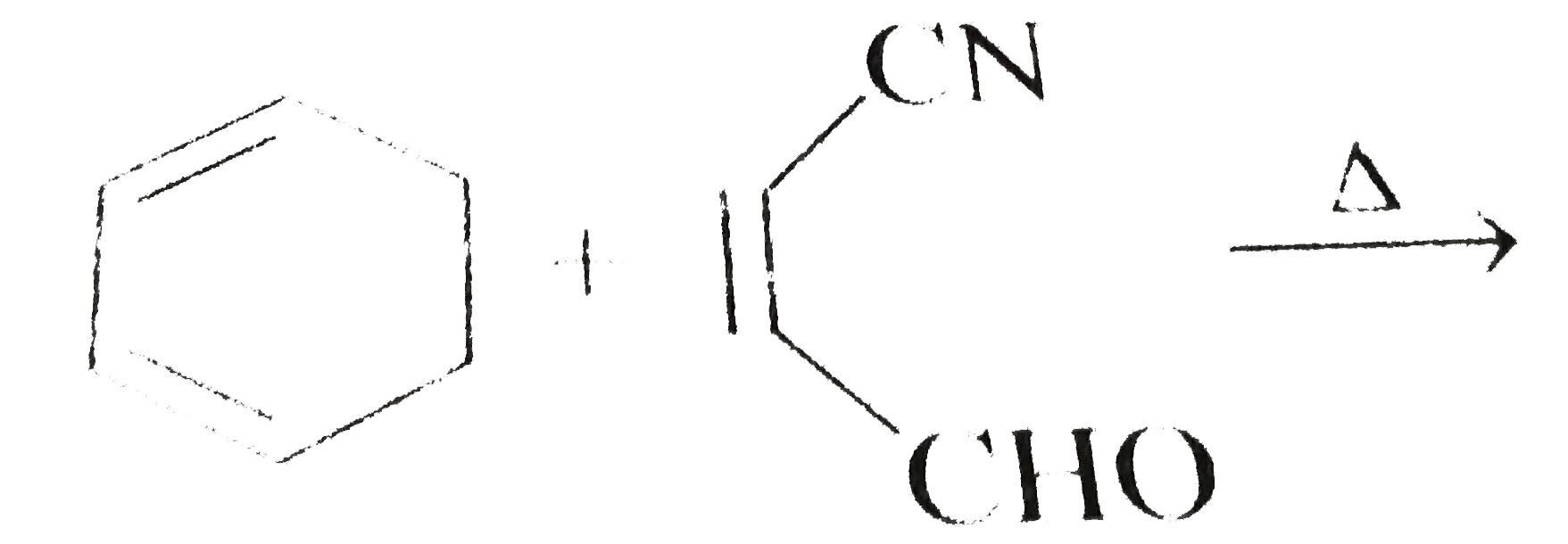 View Solution
View SolutionQuestion 4
Addition of X2 on alkene is electrophilic additon reaction.Reaction proceed through the formation of 3- membered cyclic halonium ion. Nucleophile X− attacks from backside of cyclic halonium ion hence total reaction is anti addition reaction.If this reaction proceed polar solvent then solvent itself acts as nucleophile.
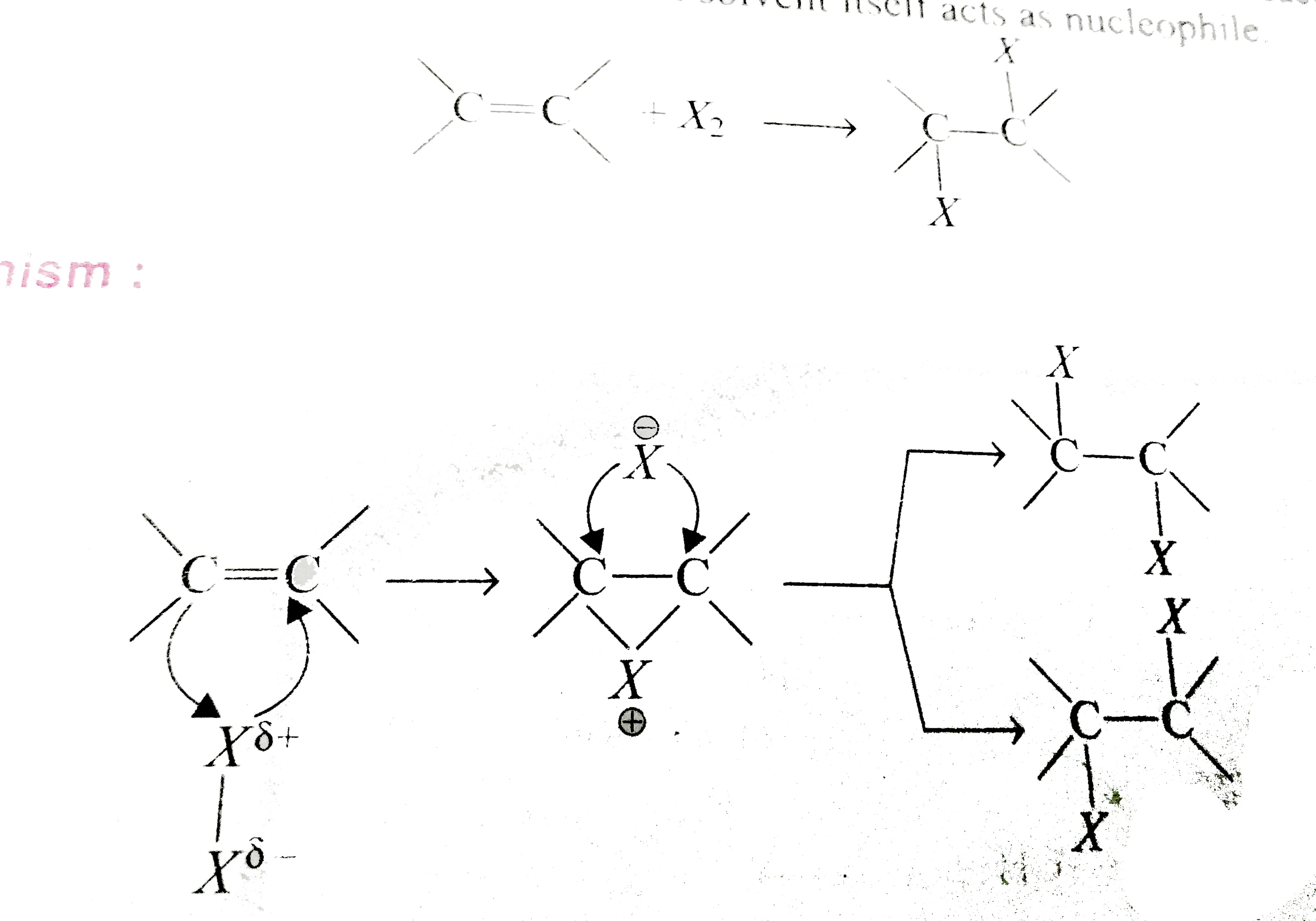
Which of the following statements is incorrect?View SolutionQuestion 5
Addition of X2 on alkene is electrophilic additon reaction.Reaction proceed through the formation of 3- membered cyclic halonium ion. Nucleophile X− attacks from backside of cyclic halonium ion hence total reaction is anti addition reaction.If this reaction proceed polar solvent then solvent itself acts as nucleophile.
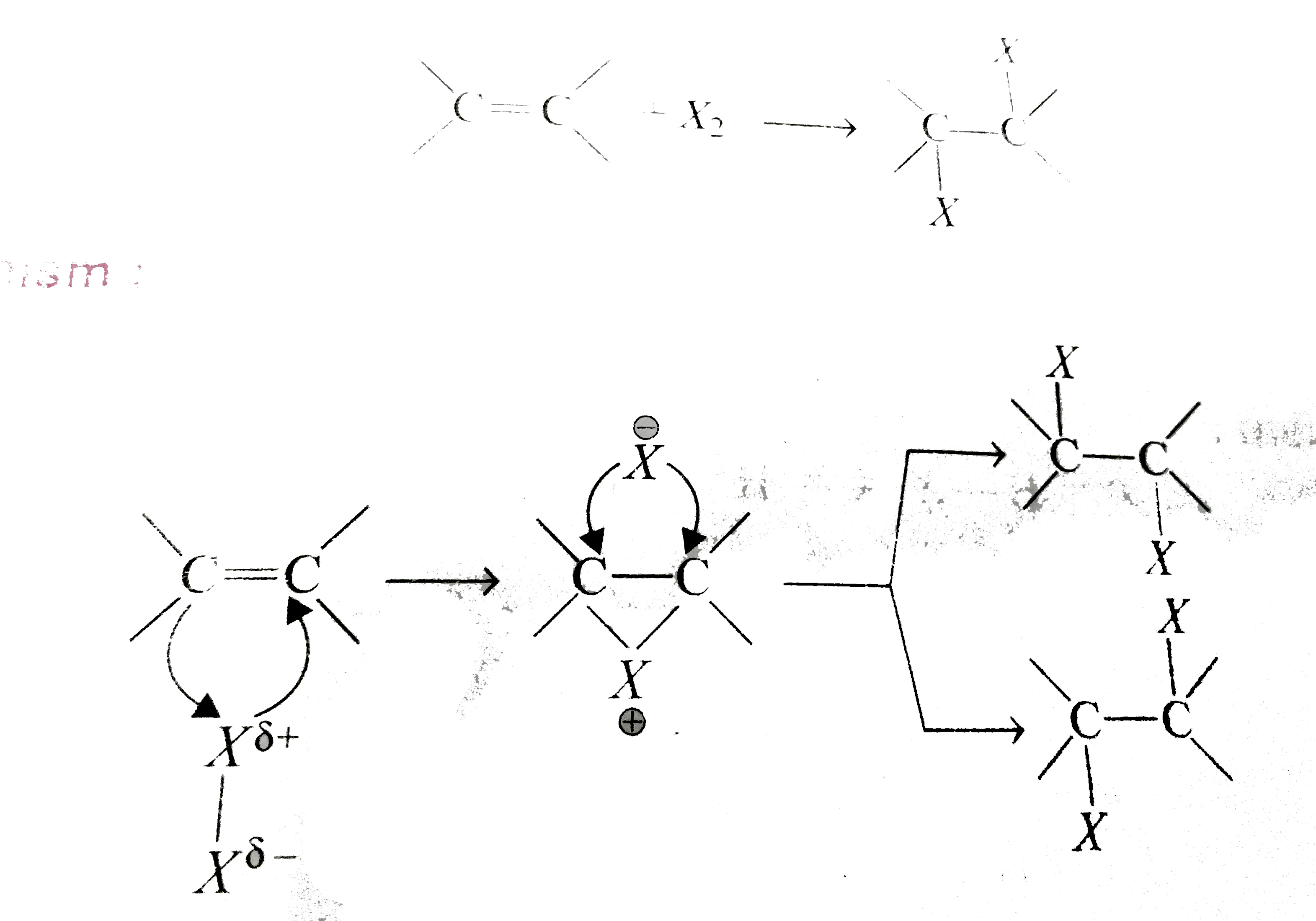
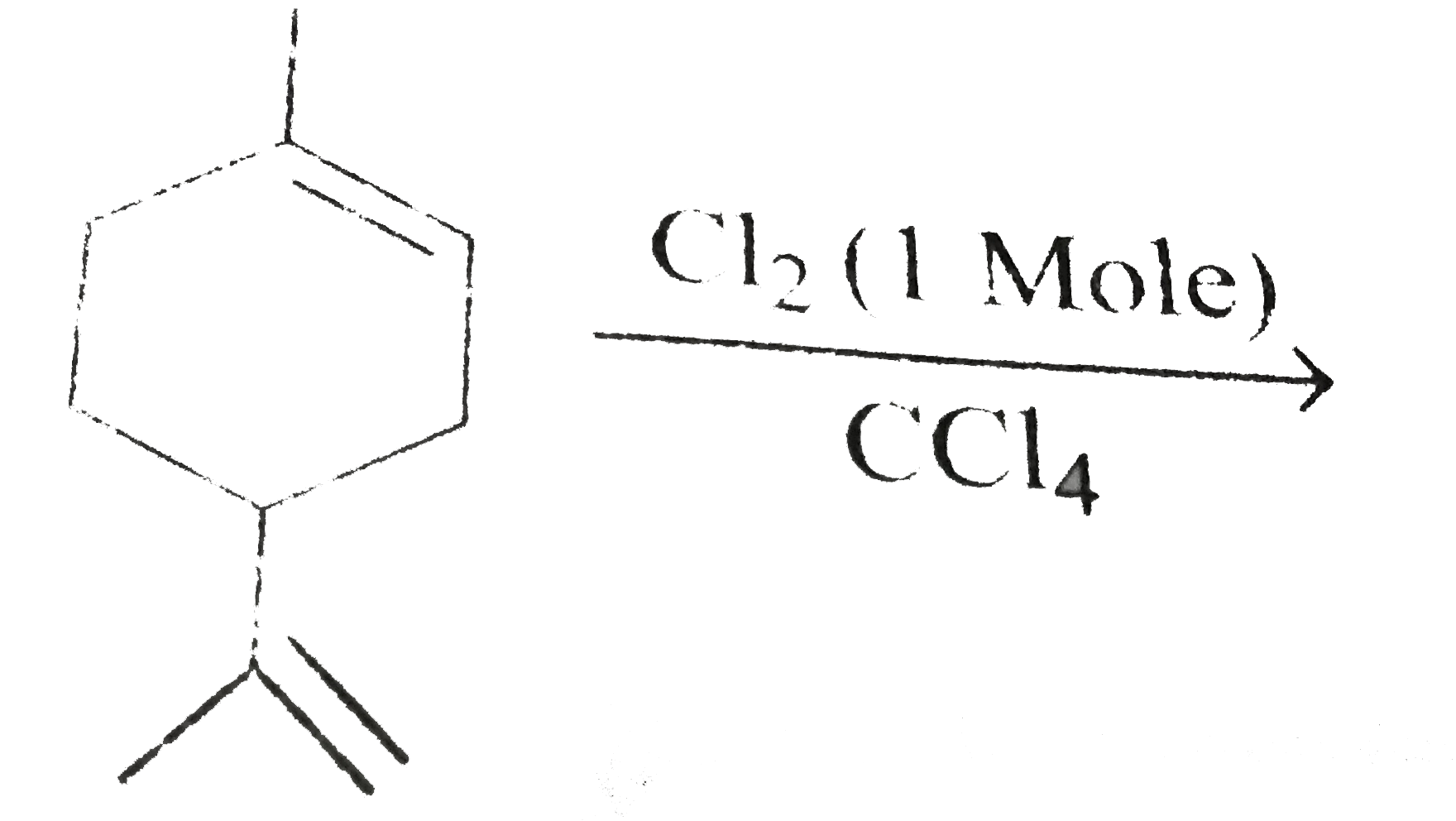 View Solution
View SolutionQuestion 6
Addition of X2 on alkene is electrophilic additon reaction.Reaction proceed through the formation of 3- membered cyclic halonium ion. Nucleophile X− attacks from backside of cyclic halonium ion hence total reaction is anti addition reaction.If this reaction proceed polar solvent then solvent itself acts as nucleophile.
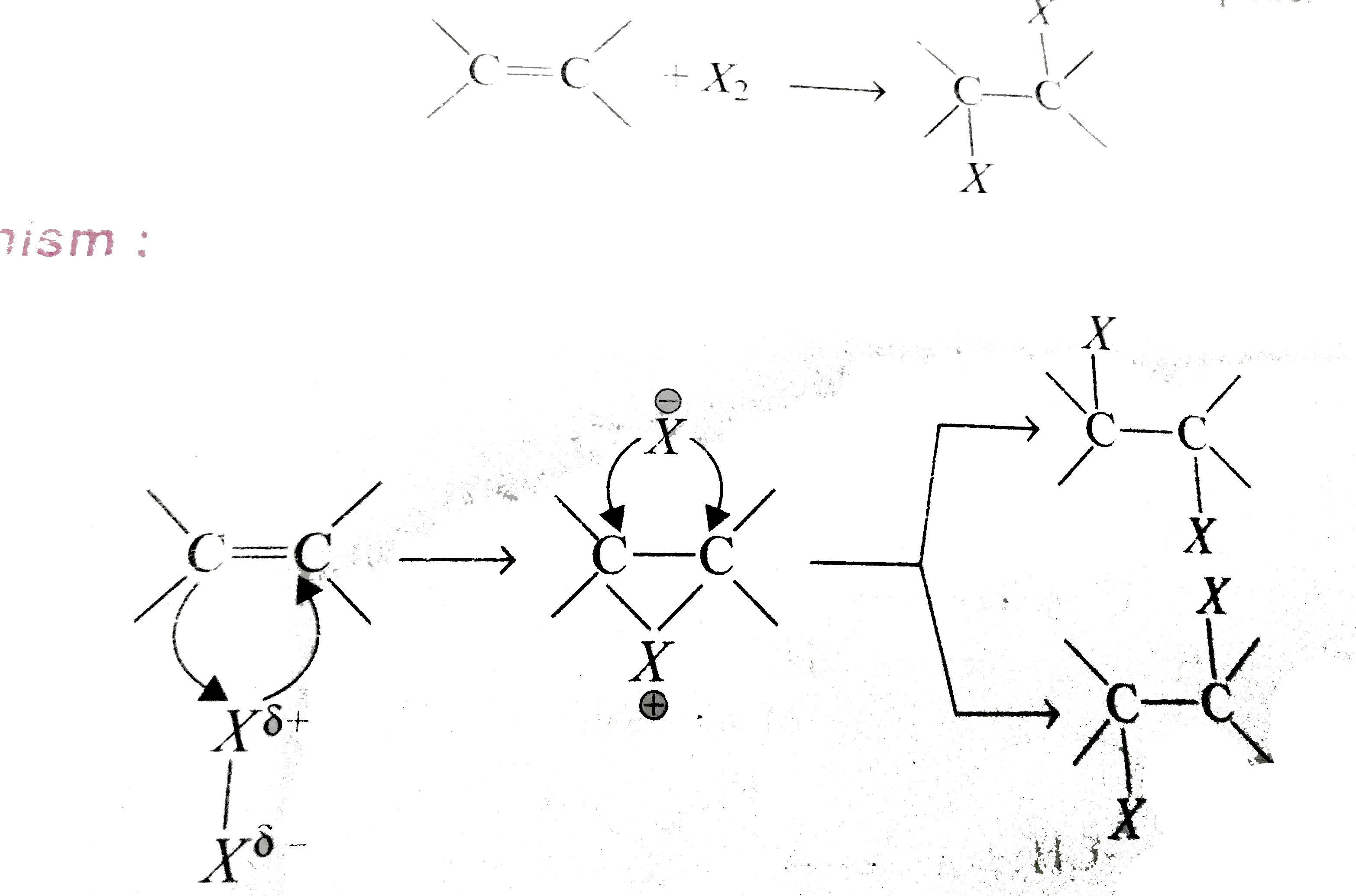
 View Solution
View SolutionQuestion 7
Addition of HX on alkene proceed through the formation of carbocation .This reaction is also kjnown as Markownikoff reaction.Accroding to Markownikoff's rule addition of electrophile occurs on theat crbon of alkene which have mor number of 'H' atom.
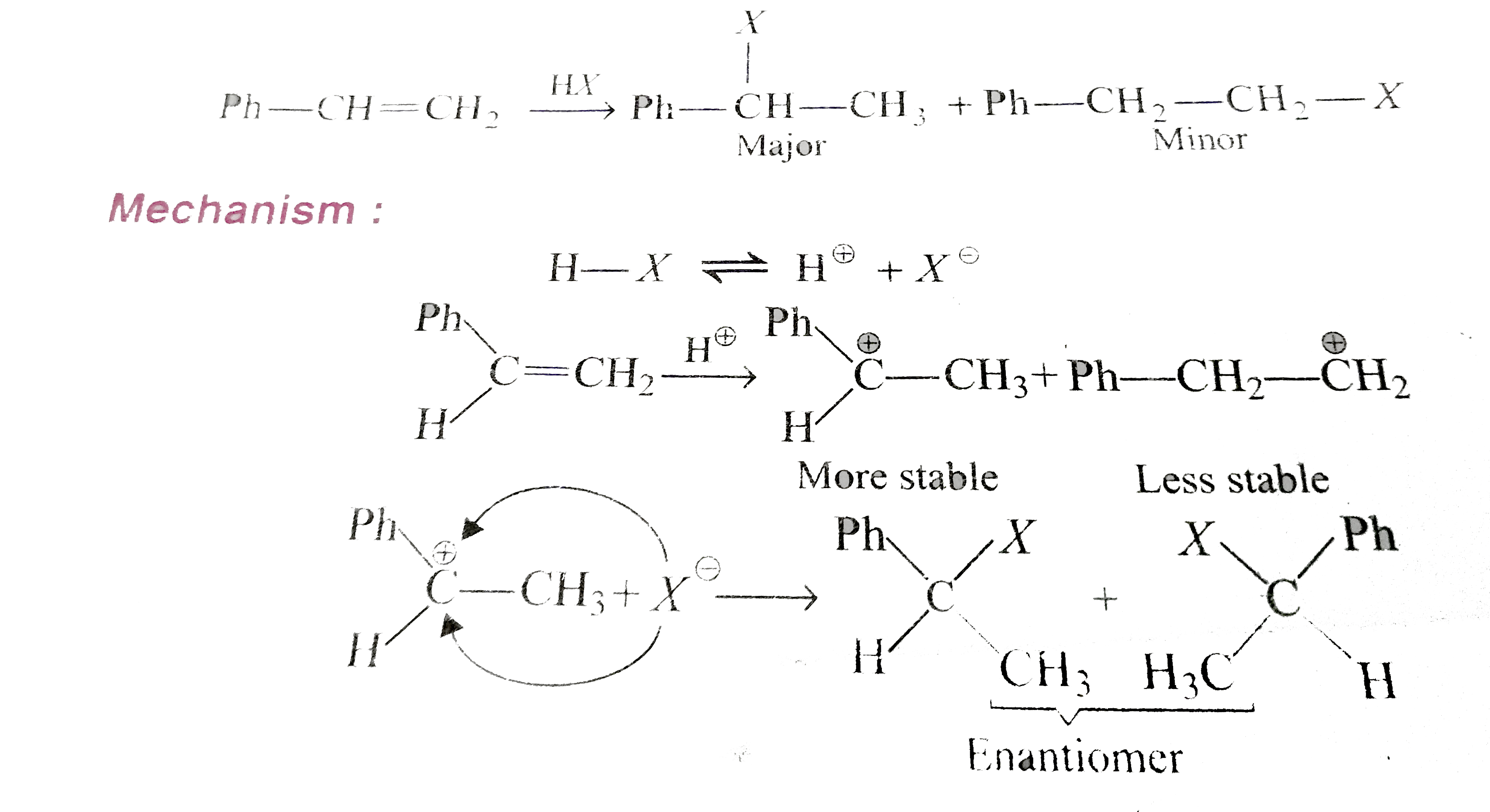
Which of the following alkenes can produce diastereomers?View SolutionQuestion 8
Addition of HX on alkene proceed through the formation of carbocation .This reaction is also kjnown as Markownikoff reaction.Accroding to Markownikoff's rule addition of electrophile occurs on theat crbon of alkene which have mor number of 'H' atom.
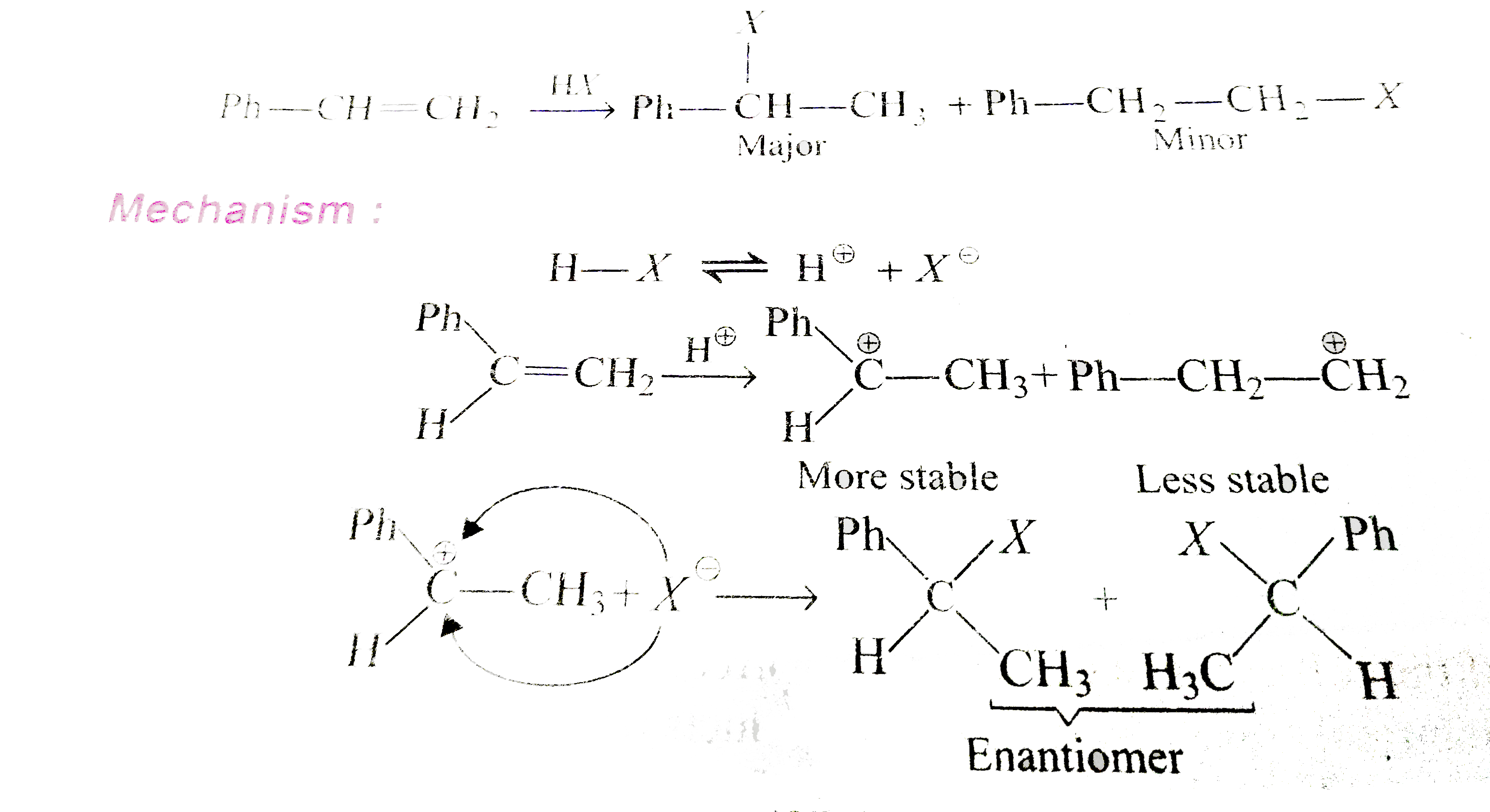
Which of the Following alkenes will give Markownikoff reaction?View SolutionQuestion 9
Addition of HX on alkene proceed through the formation of carbocation .This reaction is also kjnown as Markownikoff reaction.Accroding to Markownikoff's rule addition of electrophile occurs on theat crbon of alkene which have mor number of 'H' atom.
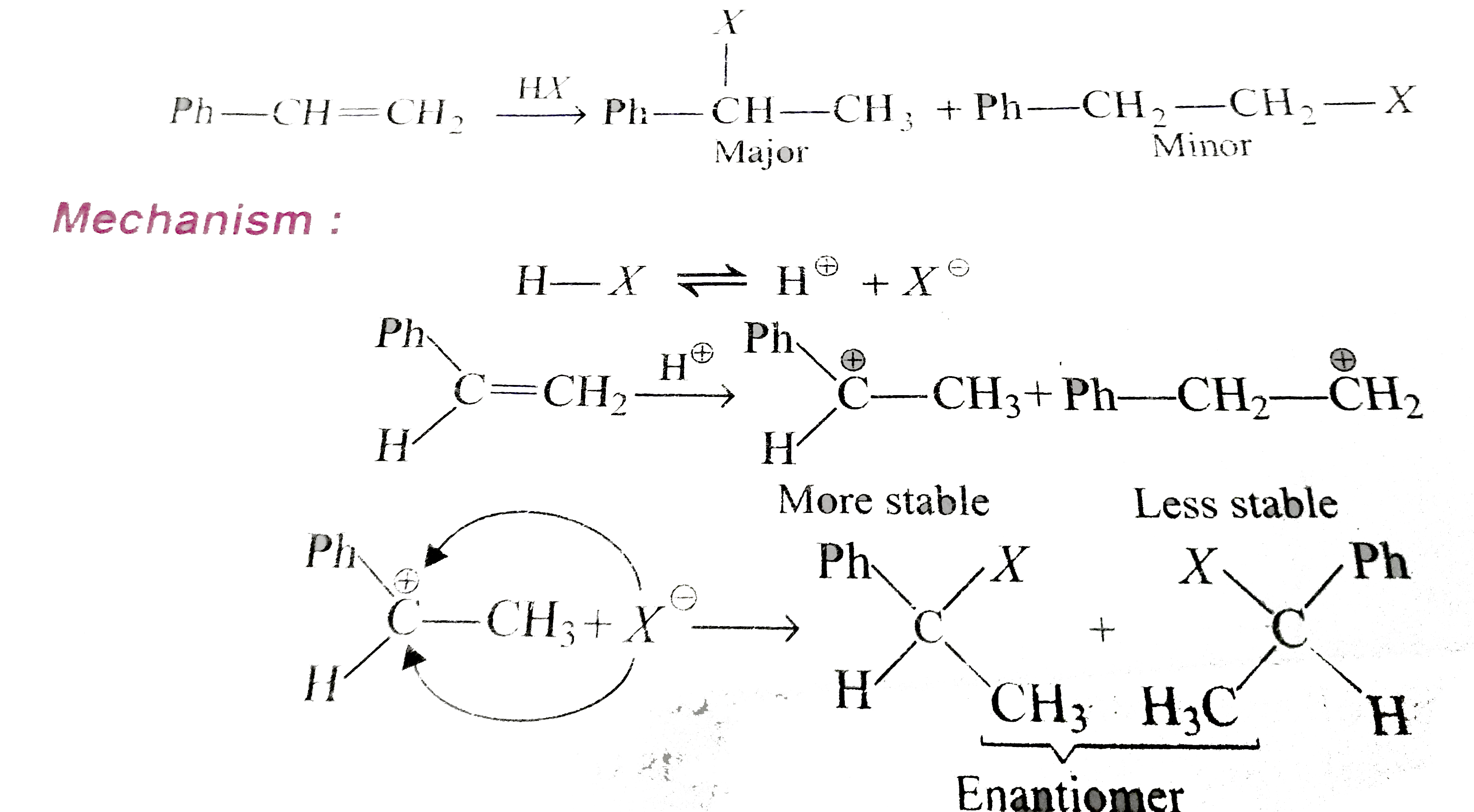
Arrange the following alkenes in decreasing order of reaction with HBr:
 View Solution
View SolutionQuestion 10
Alkene and alkyne both undergo electrophilic additon beacuise of π electron density, they behave as elctron rich species, alknens are more reactive toward this reaction because the intermiediate formed when anE⊕ adds to an alkyne is a vinylic cation wheras sthe intermediate formed when an E⊕ adds to akene is alkyl cation, which is mopre stable.
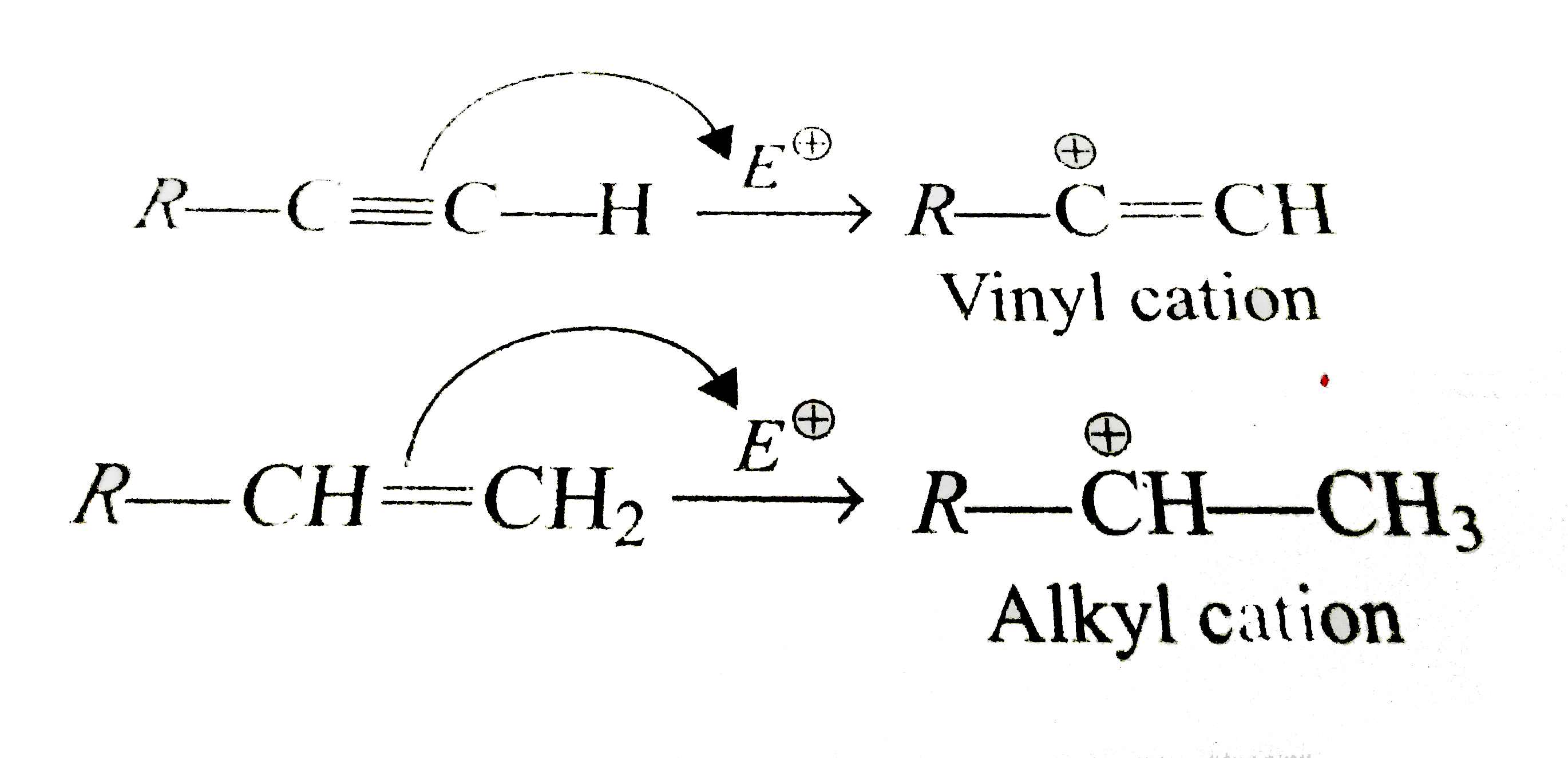
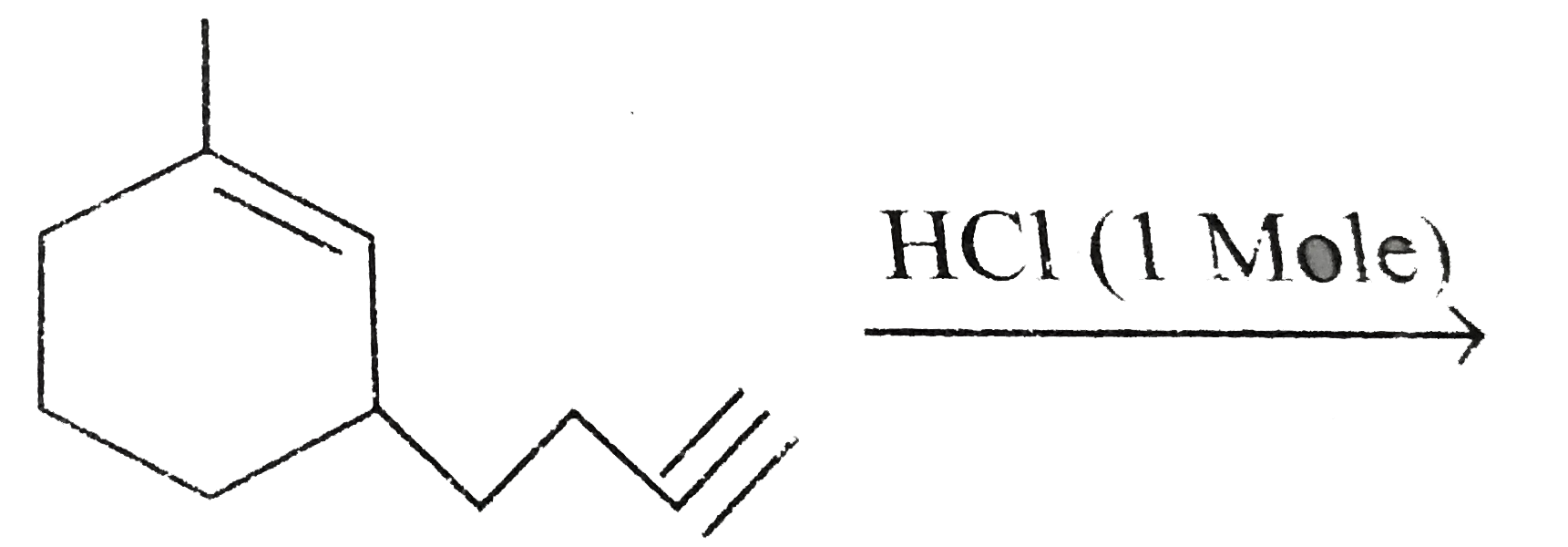 View Solution
View SolutionQuestion 11
Alkene and alkyne both undergo electrophilic additon beacuise of π electron density, they behave as elctron rich species, alknens are more reactive toward this reaction because the intermiediate formed when anE⊕ adds to an alkyne is a vinylic cation wheras sthe intermediate formed when an E⊕ adds to akene is alkyl cation, which is mopre stable.
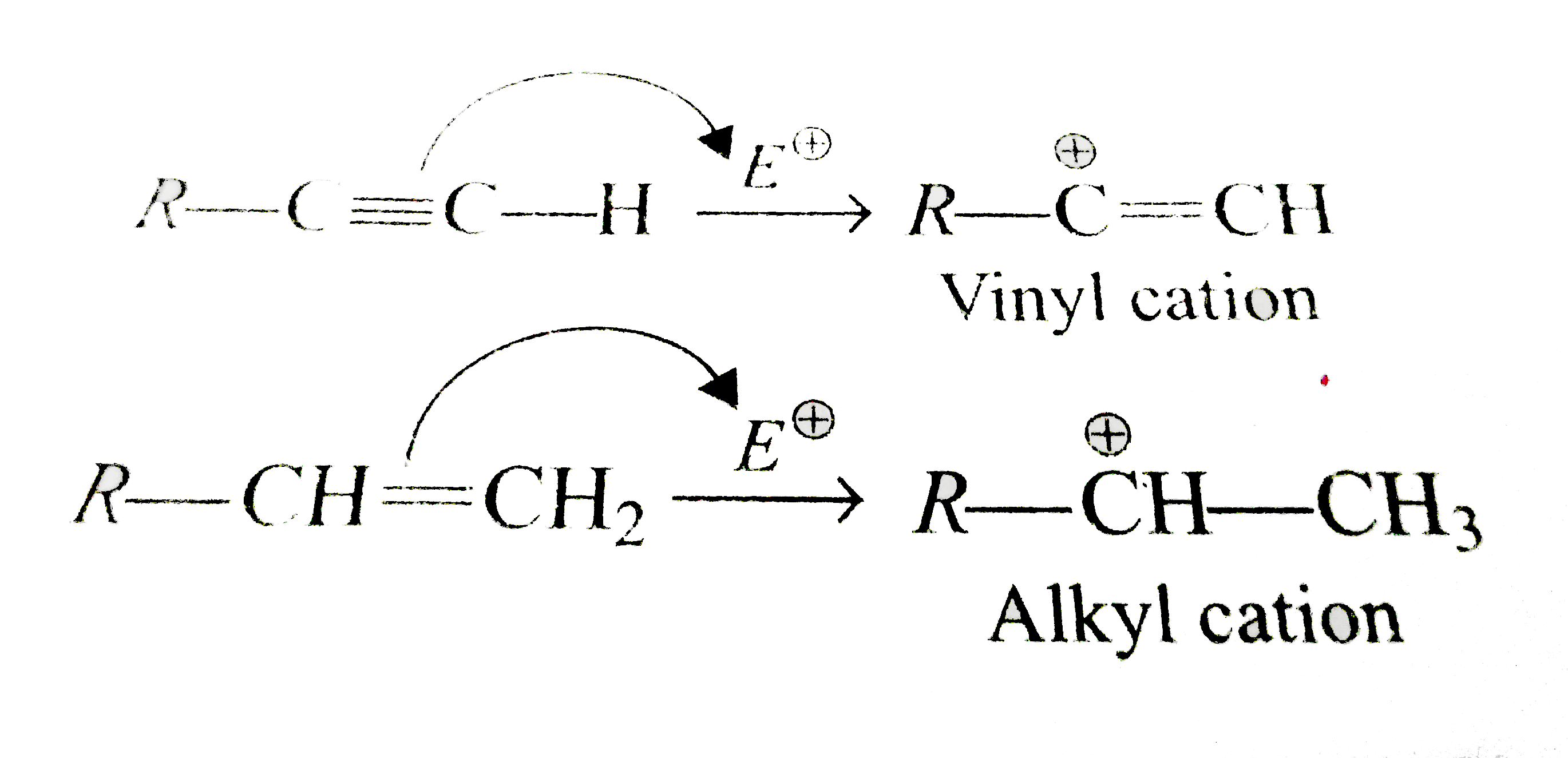
 View Solution
View SolutionQuestion 12
Alkene and alkyne both undergo electrophilic additon beacuise of π electron density, they behave as elctron rich species, alknens are more reactive toward this reaction because the intermiediate formed when anE⊕ adds to an alkyne is a vinylic cation wheras sthe intermediate formed when an E⊕ adds to akene is alkyl cation, which is mopre stable.
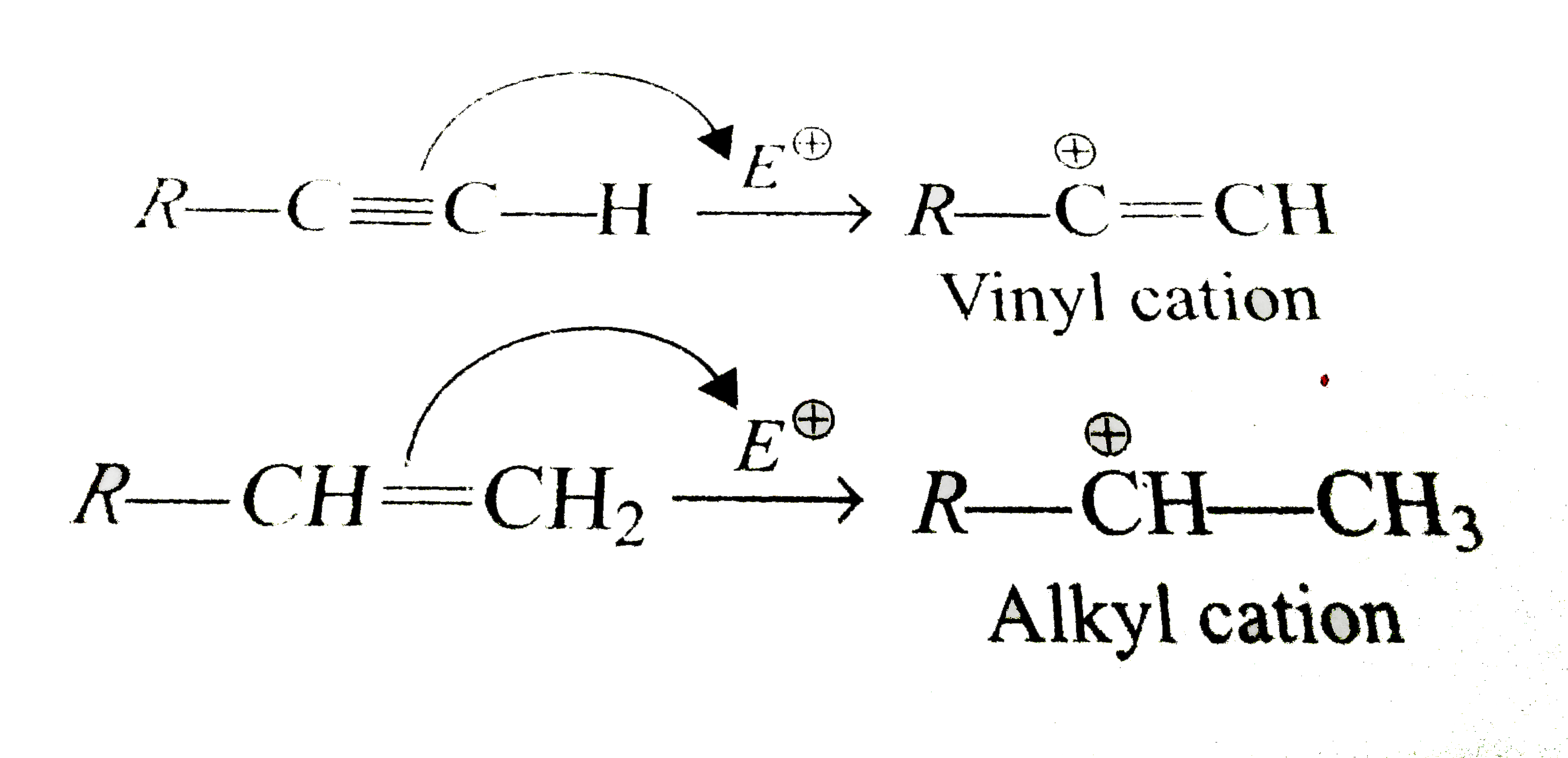 In the reaction:
In the reaction:
 View Solution
View SolutionQuestion 21
Hydroboration oxidation reaction is a process of addtition of H2O accroding to Anti-Markownikoff's rule

Reaction is regioselective.Regioselectivity off reaction is increeased by using hindered boranes.
THF (Tetrahydrofuran) is used to control reactivity of borne.
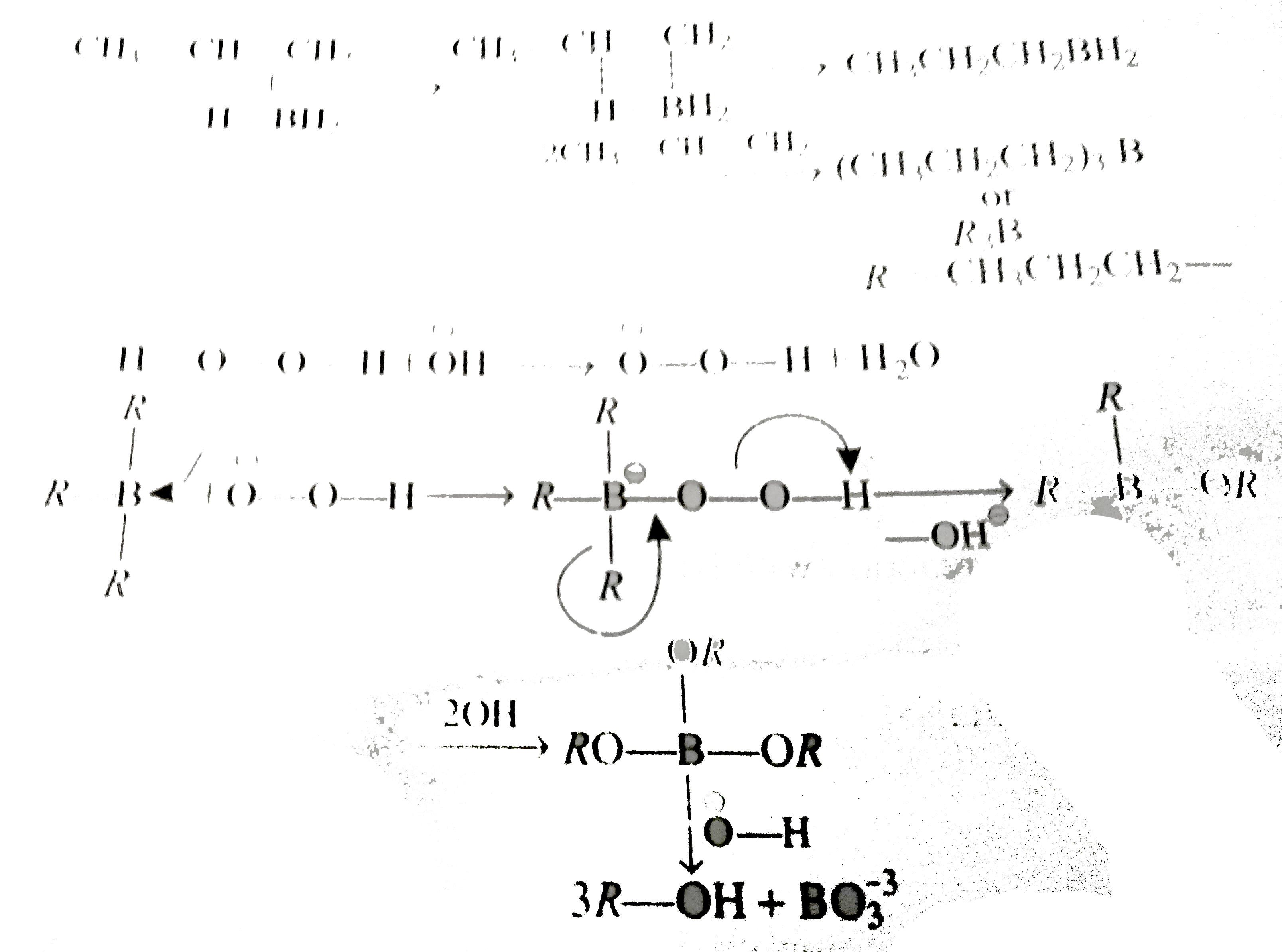
CH3−C=ChBH3.THF−−−−−−→H2O2OHMajorProduct:View Solution
All Exercises from GR BATHLA & SONS CHEMISTRY Class 11 CHEMISTRY HYDROCARBONS (ALKANE, ALKENE and ALKYNE)
- Integer Answer Type Problems
- Level 1 (Q.1 To Q.25)
- Level 1 (Q.26 To Q.50)
- Level 2 (Q.1 To Q.25)
- Level 2 (Q.101 To Q.125)
- Level 2 (Q.126 To Q.150)
- Level 2 (Q.151 To Q.175)
- Level 2 (Q.176 To Q.200)
- Level 2 (Q.201 To Q.225)
- Level 2 (Q.26 To Q.50)
- Level 2 (Q.51 To Q.75)
- Level 2 (Q.76 To Q.100)
- Linked Comprehension Type (Q.1 To Q.25)
- Linked Comprehension Type (Q.26 To Q.33)
- Match The Column
- More Than One Correct (Q.1 To Q.25)
- More Than One Correct (Q.26 To Q.50)
- Subjective Type Problems

